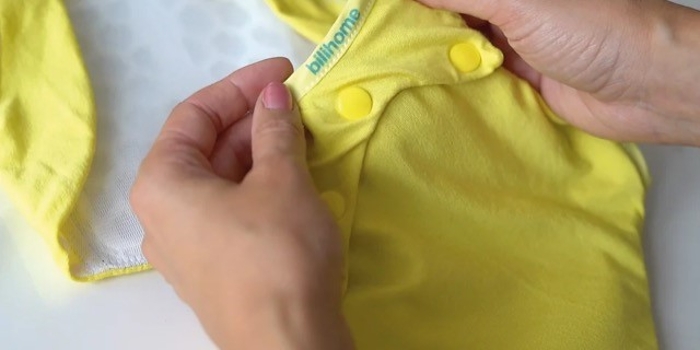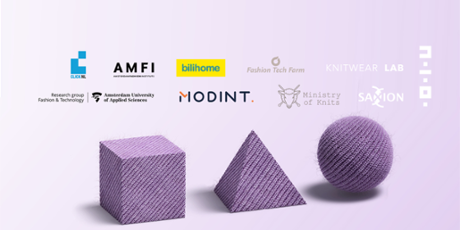Knit-a-verse presents future of textile and knitting technology
27 Sep 2022 17:05 | Faculty of Digital Media and Creative IndustriesOn the two-day Knit-a-verse event on September 29th and 30th, Dutch innovative companies, researchers together with international experts will present the future of textiles and knitting technologies. The conference is the final event of the 3D Knitwear Fieldlab project of the Fashion Research & Technology group of the Amsterdam University of Applied Science (AUAS) and NL NextFashion & Textiles, which was funded by CLICKNL. During the event the latest innovations and research findings are shared to accelerate developments and inspire entrepreneurs as well as creative professionals.
Fashion Research & Technology Lector Troy Nachtigall: “In the Netherlands we have the knowledge and skills to be at the forefront of the textile industry. The programme of the Knit-a-verse is very diverse: From using linseed in textiles, to artificial intelligence generated tapestry and garments based on your online profile. But also software that can knit 3D perfectly for your shape and embedding smells in fabric.”
With Ministry of Knits the research group developed a high-quality local Dutch Merino yarn developed by processing the usually discarded belly and head wool, with another fiber. During the research they used a Shima Seki Full-Knit 3D knitting machine that is able to knit a complete garment.
Nachtigall: “It is like the 3d printing of knitting. These technologies can make a perfect sweater but also the fabric of a chair, so these technologies are just as important to design, architecture and the automotive industry.”

Hardly any waste
Producing the knitted clothing directly in 3D excludes manual labour and the problem of the many (often underpaid) handicrafts associated with knitted clothing. This new technology has the advantage that there will be hardly any waste during the production process, and that it can be produced on a small scale, locally and on demand.
About Fieldlab 3D Knit
‘Fieldlab 3DKnit’ was a two-year project organised by the Fashion Research & Technology research group and the AUAS to enable the creative industry to experiment with and evaluate new 3D knitted materials, products, services, and/or systems in a laboratory setting.
Within Fieldlab 3DKnit, it was possible to collect 3D data and submit it to extensive analyses, study parametric design techniques and flexible production techniques. The Universities’ experts and/or students provided advice and explanation about 3D Knit design and worked with various companies to acquire new knowledge and skills.
The project was based on four themes:
“Sustainably Distributed” addressed the distributed production from the fiber to a wearable product to localise production more.
"Practically Parametric” where the challenges and possibilities of parametric design were explored (software and hardware) to enlarge the accessibility of 3D knitting technology and to enable on-demand manufacturing.
“Entirely Personal” looked into how data can drive ultra-personalized products and services through individualisation, customisation, personalisation of sizing(analysis), design, production and use for extreme performance situations.
“Technologically Emergent” researched how the emergence of new technologies enables shape-changing interfaces, biological fibers, 3D design, soft robotics, and computational couture.


